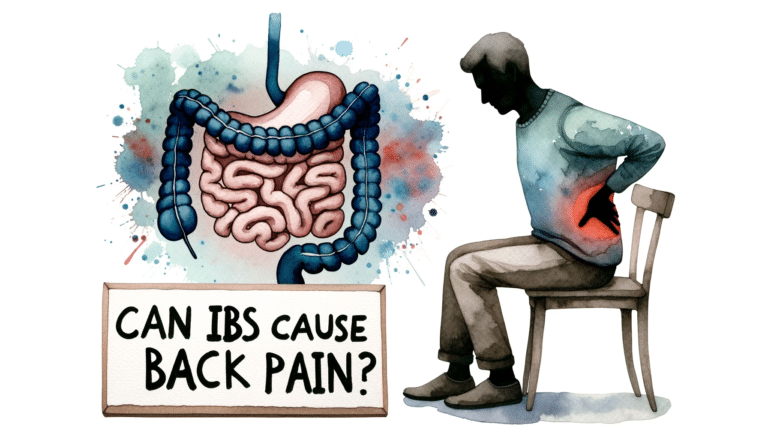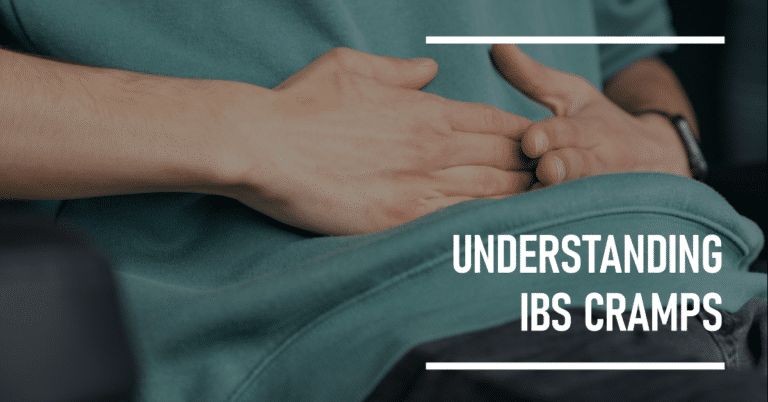The Conundrum of Irritable Bowel Syndrome: IBS and Itchy Skin Connection

Irritable bowel syndrome (IBS) and itchy skin often go hand-in-hand.
The connection is clear: IBS causes inflammation in the gut, which can lead to inflammation and itchiness in the skin [1].
The good news is that by managing IBS symptoms like constipation, diarrhea, and abdominal pain, you may also find relief from uncomfortable skin itching.
In short: Get your gut health in check to stop the maddening itch of IBS.
Read on to learn more about the link between IBS and skin issues plus simple lifestyle changes to treat the root cause of your itchy woes.
What is Irritable Bowel Syndrome (IBS)?
IBS, or irritable bowel syndrome, is a common gastrointestinal disorder, affecting a significant number of adults worldwide.
IBS implies a collection of bowel symptoms, varying in severity and frequency, disrupting the normal digestive process.
The exact cause of IBS remains unknown, but several factors including genetics, diet, and stress seem to play a role.
Unveiling the Itchy Consequences of IBS
A rather overlooked aspect of IBS is its potential to cause itchy skin. It seems surprising at first, how can a primarily gut disorder manifest itself on the skin’s surface?
Medical studies suggest that IBS may indeed have implications beyond the gastrointestinal sphere, extending its shadow to our skin [2].
Decoding the Connection: Receptors
So, what exactly interconnects our gut and skin? The answer lies in tiny, yet vastly significant receptor proteins.
Receptors are microscopic proteins found throughout our bodies that react to specific stimuli, triggering various biological responses.
It appears the same type of receptors (itch receptors) that cause an itch on our skin may exist in the human gut.
In certain IBS sufferers, these receptors may trigger an unusual ‘itchy gut’ syndrome, contributing to the chronic pain endured by them [3].
This adds a new dimension to understanding the chronic abdominal pain that many people with IBS experience.
Can IBS Itself Cause Itchy Skin?
The million-dollar query, can IBS lead to itchy skin or skin conditions directly? Current research suggests a correlation, albeit more research is needed to confirm it definitively.
There is anecdotal evidence of some IBS patients reporting skin issues, and a few studies have demonstrated overlaps between IBS and certain skin conditions.
Why Are Skin Conditions More Common in People with IBS?
Interestingly, an 8-year population-based cohort study showed that people diagnosed with IBS were more likely to develop atopic dermatitis (AD), a type of inflammatory skin disorder [4].
The common factor between AD and IBS symptoms is visceral hypersensitivity [5]. This means that people with IBS may have a heightened sensitivity within their gut, causing them to feel excessive pain when they shouldn’t.
Potential Influence of Gut Health on Skin Problems
The gut and skin are more alike than we might think. One idea suggests that certain substances in the gut, like irritants or harmful microbes, could cause inflammation that shows up on the skin.
What this proves is that gut health and skin well-being appear to be more closely linked than we think!
Deciphering the Underlying Cause of Gut Pain-itch in IBS
Very likely, the same receptors that cause an itchy sensation on the skin also exist in our gut. When these receptors are activated, they can contribute to chronic gut pain, frequently seen in IBS patients.
Not only does this broaden our understanding of chronic abdominal pain, but also opens new avenues for potential diagnostic and therapeutic strategies.
Towards an IBS Cure: What Does This Mean?
Understanding the role of itch receptors in the gut could revolutionize IBS treatment.
If we can target the underlying cause of gut pain and the associated itchy distress, we could potentially reduce symptoms and improve the quality of life for IBS sufferers.
Cause or Coincidence: The Verdict on IBS and Itchy Skin
The potential connection between IBS and skin conditions has sparked curiosity and ongoing research. While the exact relationship remains uncertain, it encourages us to consider IBS beyond the gut.
Remember, everyone’s IBS journey is unique, and not all individuals may experience skin problems. Consult healthcare professionals for personalized guidance on managing both IBS and skin conditions.
IBS and Itchy Skin – FAQs
Can IBS cause itchy skin?
For sure, IBS can lead to itchy skin or make current skin conditions worse. Since there’s a connection between the gut and skin, inflammation in the intestines from IBS can result in irritation and inflammation on the skin as well.
How does IBS affect the skin?
IBS impacts the skin through the gut-skin connection. When someone has IBS, they tend to have an imbalance in gut bacteria, intestinal inflammation, and a damaged intestinal barrier. This can kick off inflammatory immune system reactions that show up on the skin as things like eczema, psoriasis, and rosacea.
Why are skin conditions more common in people with IBS?
Folks with IBS are more likely to have skin issues because of increased intestinal permeability or “leaky gut.” This allows bacteria, toxins, and other irritants to get from the intestines into the blood and cause inflammation throughout the body, including the skin. This can trigger or worsen skin reactions.
How does gut health influence skin problems?
When someone has an unhealthy gut environment due to IBS, it interrupts normal immune function and can lead to widespread inflammation, even in faraway places such as the skin.
Probiotics, prebiotics, and other therapies that improve gut health may in turn ease inflammatory skin problems.
Can managing IBS symptoms help alleviate itchy skin?
Definitely, getting IBS symptoms under better control through diet changes, stress management, probiotics, medications, and gut-directed hypnotherapy services like Nerva IBS can help restore gut health and permeability. This lowers overall inflammation and related skin stuff like itchiness for many IBS patients.
Disclaimer: This article is meant for informational purposes and is not intended as medical advice. Consult with a qualified healthcare professional for proper diagnosis and treatment.
Disclaimer: This content is based on my personal experience as an individual diagnosed with celiac disease and IBS (Irritable Bowel Syndrome) who follows a strict gluten-free diet. This does not constitute medical advice. Please consult a medical professional, nutritionist, or qualified dietitian for personalized, professional advice.






